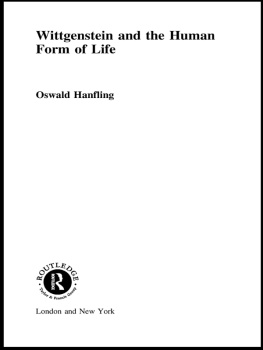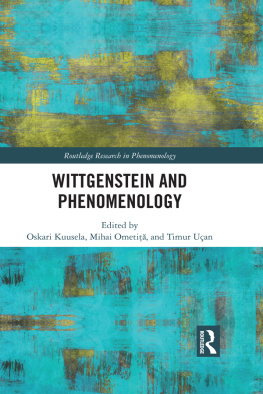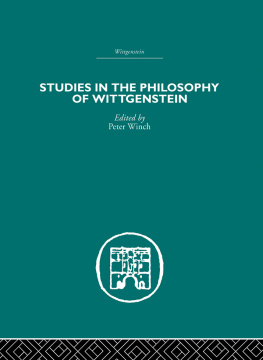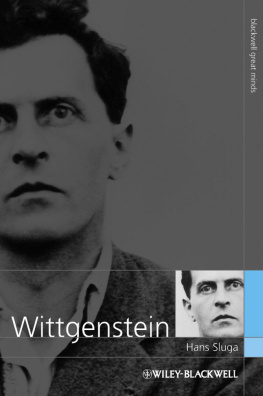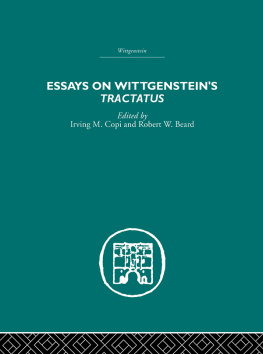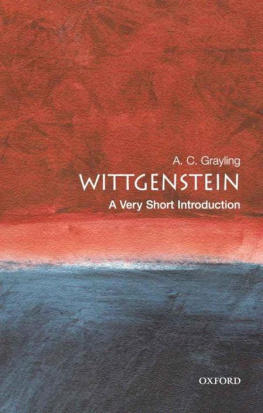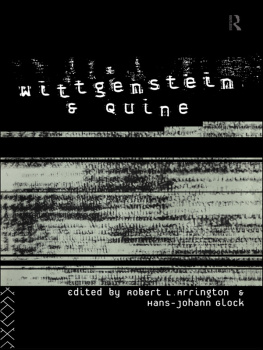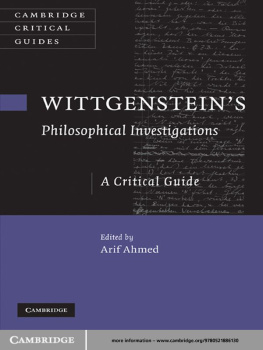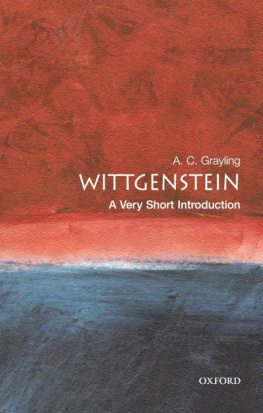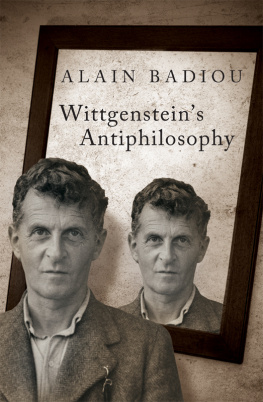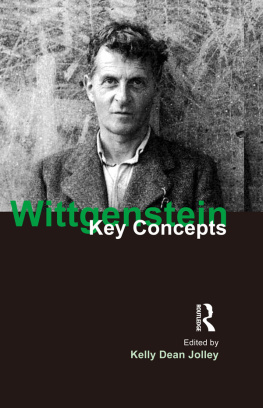Wittgensteins later writings generate a great deal of controversy and debate, as do the implications of his ideas for such topics as consciousness, knowledge, language and the arts.
Oswald Hanfling addresses a widespread tendency to ascribe to Wittgenstein views that go beyond those he actually held. Separate chapters deal with important topics such as the private language argument, rule-following, the problem of other minds, and the ascription of scepticism to Wittgenstein. Describing Wittgenstein as a humanist thinker, he contrasts his views on language, art, humanity and philosophy itself with those of scientifically minded philosophers. He argues that the human form of life calls for a kind of understanding that cannot be achieved by the methods of empirical science; that consciousness, for example, cannot properly be regarded as a property of the brain; and that the resulting problem of consciousness is an illusion.
This edition published in the Taylor & Francis e-Library, 2003.
All rights reserved. No part of this book may be reprinted or reproduced or utilised in any form or by any electronic, mechanical, or other means, now known or hereafter invented, including photocopying and recording, or in any information storage or retrieval system, without permission in writing from the publishers.
Sources
, Questions and answers in Wittgensteins philosophy, is a revised version of my article in Wittgenstein eine Neubewertung, ed. R. Haller & J. Brandl (Hlder 1990).
, What does the private language argument prove?, is a substantially rewritten version of my article in Philosophical Quarterly 1984.
, Does language need rules?, is a substantially rewritten version of my article in Philosophical Quarterly 1980.
, Criteria, conventions and the problem of other minds, is a substantially rewritten version of my article in Critical Essays on Wittgenstein, ed. Stuart Shanker (Croom Helm 1986).
, Wittgenstein on the use of I know: parts of this are adapted from On the Meaning and Use of I know, Philosophical Investigations 1984, and from my introduction to a Catalan translation of On Certainty (Edicions 62 s/a, Barcelona 1984).
, Was Wittgenstein a sceptic?, is a much revised version of my article in Philosophical Investigations 1985.
, Wittgenstein on language, art and humanity, is a revised version of my article in Wittgenstein, Culture and the Arts, ed. Richard Allen and Malcolm Turvey (Routledge 2001).
, Wittgenstein and the problem of consciousness, is a revised version of Consciousness: the Last Mystery, in S. Schroeder (ed.) Wittgenstein and Contemporary Philosophy of Mind (Palgrave 2001).
, Could machines think?, is a substantially rewritten version of my contribution to a symposium with Christopher Cherry under the title Machines as Persons?, in D. Cockburn (ed.) Human Beings (CUP 1991).
, Thinking, is a slightly revised version of my article in Wittgenstein A Critical Reader, ed. H.J. Glock (Blackwell 2001).
, Secondary sense and what they have in common: parts of this are taken from I heard a plaintive melody, The Wittgenstein Centenary Essays, ed. A.P. Griffiths (CUP 1991).
Abbreviations of works by Wittgenstein
Introduction
Wittgenstein on forms of life
The expression form of life occurs three times in . It is used by Wittgenstein to make a number of points. In PI 23 he introduces it, together with language-game, to bring into prominence the fact that the speaking of language is part of an activity, or of a form of life. We are not to suppose that the nature of language can be understood in isolation from the activities in which uses of language are embedded. Language is not, as he thought in his earlier work, a system of propositions that picture or correspond to states of affairs in the world. The uses of language are various, and they are interwoven with the various activities (language-games, forms of life) in which human beings are engaged.
A parallel thought is expressed in , p. 174, but this time it is in connection with emotions, such as hope and grief. Having said that hope can be experienced only [by] those who have mastered the use of a language, he writes: That is to say, the phenomena of hope are modes of this complicated form of life (PI p. 174). And again: Grief describes a pattern which recurs, with different variations, in the weave of our life (ibid.). We are not to suppose that hope and grief are mere occurrences within the mind, having no essential connection with the world in which we live and act, including the use of language. They are, on the contrary, interwoven with these and could not be supposed to exist in isolation from them. They are parts of our form of life, but not detachable from the whole.
There is also, however, a difference between the two passages, about what is meant by form of life. In the first (PI 23) he goes on to draw attention to the multiplicity of language-games, giving a long list of examples; and presumably he thinks of forms of life as having the same multiplicity. In the second passage, however, he appears to be thinking of our life and this form of life as a whole. In the first passage form of life is used in the plural, but this is not so in the second.
These uses of form of life are not, of course, incompatible: in the same way one might speak of language-games in the plural, but also of the language-game, meaning the whole of language and the activities in which it is embedded. In the first case, one might be drawing attention to the variety of language uses; in the second, to the fact that they are all interconnected. (In this respect language-games differ from games in the ordinary sense.) The expression form of life occurs again in the important and much quoted remarks of PI 2402, where he also speaks of the framework of our language:
Disputes do not break out (among mathematicians, say) over the question whether a rule has been obeyed or not. People do not come to blows over it, for example. That is part of the framework on which the working of our language is based (for example, in giving descriptions). (PI 240)
In PI 242 he writes that if language is to be a means of communication there must be agreement not only in definitions but also (queer as this may sound) in judgements. People do, of course, disagree in their judgements: what is described as X by one person may not be X in the opinion of another. But not all descriptions can be matters of opinion if descriptive language is to function at all. At some level there must be agreement in judgements, and what is meant by this is not agreement in opinions, but in form of life (241). In of the

